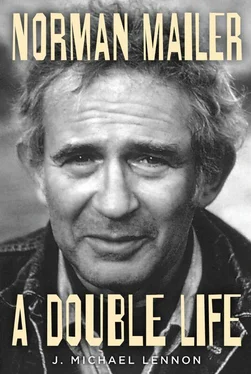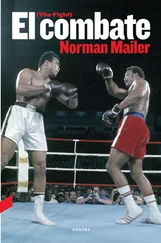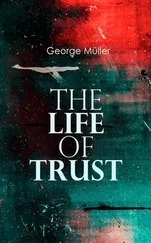In 1913 the Schneiders established a boardinghouse with sixty rooms in three adjacent houses on Morris Avenue, naming it the Maple Hotel and Cottages. Beck and her husband, Louis Shapiro, partnered with her parents in the operation of the Maple for two years before it burned to the ground in the winter of 1915, one of many such fires in Long Branch. The family remained in the hotel business, however, especially since it was easy to provide the guests with kosher food from the store. From 1916 to 1918, again with Beck and her husband, they leased the Scarboro Hotel on Ocean Avenue, built in 1882 and catering to an almost exclusively Jewish clientele. Beck and Louis later bought the hotel, expanded it, and added a coat of white stucco; eventually it became the largest hotel (two hundred rooms) in Long Branch and was a source of family pride until it too burned down in 1941.
Although the Schneider girls worked twelve-hour days in the family business, they had a passionate interest in culture. At age twelve Fan read Anna Karenina (her son’s favorite novel) and, later in high school, Dickens and George Eliot. On Saturday nights, they went to the movies and, in the summers saw Broadway tryout plays and Gilbert and Sullivan operettas at Riverside Park.
BY THE SUMMER of 1919, Fan would go into the hotel business full-time with her parents. She and her father went to Lakewood, New Jersey, in October of 1919 to lease a place as a winter resort. The fifteen-bedroom house was called Lakeview Lodge, although Fan noted bluntly, “I assure you there was no view.” New visitors were sought by placing ads in the New York Yiddish newspaper, the Tageblatt.
One of the ads was read by a twenty-eight-year-old veteran of World War I, Isaac Barnett Mailer. Barney, as he was generally known, had studied accounting at Transvaal University in Johannesburg and then joined the South African army. Stationed in London from 1917 to 1919, he was mustered out in the summer of 1919 and decided to travel to the United States rather than return home. His parents, Benjamin and Celia Mailer, had lived in Johannesburg since emigrating from Lithuania in 1900, when Barney, the second of eleven surviving children, was nine. The Mailers had established themselves solidly there, operating various businesses. Barney arrived from Liverpool on the White Star liner SS Baltic in November 1919, and moved in with his sister Anne and her husband, David Kessler, who were then living in the Flatbush section of Brooklyn.
The favorite child of his mother, Barney was a compulsive gambler whose debts had caused his family considerable anguish. According to Barbara, the family finally gave her father “an ultimatum: go in the army or we will wash our hands of you.” World War I forced Barney to give up or at least curtail his betting in London; the United States was to be where he would redeem himself. The plan was simple: live with Anne and Dave (who were childless) until he found a professional position and a wife, then settle down. Shortly after Barney’s arrival, Anne caught the flu at the tail end of the pandemic of 1918–19. Reservations were made at Lakeview Lodge for her recuperation and in January 1920, Barney and the Kesslers took the train to Lakewood. Fan recounts the various circumstances of their first meeting three separate times in her memoir, written at the request of her son.
The rug was rolled back, so we could have dancing Saturday night. Sunday afternoon we all took a walk to the Lake, and Monday morning just before leaving, Dad [Barney] and I found we were all alone in the living room. We were both shy, there was a pack of playing cards on the table and Dad said, “Let me show you some card tricks.” I thought he was very nice, polite and really handsome.
Barney Mailer was also a fashion plate. His dress, if somewhat conservative, was tasteful. He wore pearl gray spats, carried gloves, an umbrella or cane, and wore a felt hat. In his photographs, he seems always to be dressed in a three-piece suit. His manners were refined, his accent intriguing, and his handwriting spidery and graceful. Unlike his son, whose unruly hair became a trademark, Barney’s hair was always neatly combed. He had a strong, slightly cleft chin and good features, and looked a bit like Donald Rumsfeld, his son said. With his round spectacles, he appeared slightly owlish. He did not look uneasy holding a martini or a deck of cards. Women found him attractive and he reciprocated; he had a roving eye. Mailer used words like “dapper,” “fussy,” and “punctilious” to describe his father; he also called him “an elegant, impoverished figure out of Chekhov,” who “was very English as only a South African can be.”
Barney and Fan immediately struck up a correspondence. Barney wrote the first letter, as propriety dictated. His letters are courtly, self-conscious, and somewhat reserved; Fan’s are warmer, bolder; her infatuation was obvious. In June 1920, she told him that she loved him and he replied that she was too young to make this sort of statement. Without revealing his gambling addiction, he warned her of it obliquely, writing that she didn’t really know who he was. Fan was ready to take the next step; Barney was not ready. But in September he arranged for a visit to Long Branch. It was during this visit or shortly afterward that Barney brought up his vice. Mailer recalled his mother telling him the story: “Before they were married, he said to her, ‘I gamble.’ ‘Oh,’ she said, ‘well, you won’t gamble after we’re married, I’m sure.’ And he said, ‘I guess not.’ ” When Barney met the extended family, they were impressed with him, although his Beau Brummel appearance and British accent puzzled them slightly. “I think it always pleased him,” Barbara wrote, “that he wasn’t readily taken for Jewish.” He had long ceased using his Jewish name, Yitzhak Benjamin, and in New York gambling circles his code name was “I. B. from Brooklyn,” as his son learned from his bookie decades later.
Before Barney left in October 1920 for Milwaukee and a new accounting job with a large firm, he and Fan were unofficially engaged. The following spring, he was back in New York and the engagement became official. Barney found a job in the city, commuting from Long Branch, where they lived temporarily with her parents. Decades later, after Barney had died, she said that he “seemed to pick up gambling friends in New York. I was so naïve about gambling, I couldn’t understand why anyone would want to lose hard earned money, money that was needed for daily life, money that furnished freedom to give one hope and ambition to climb the ladder of success.” But as a young woman (not as young as she pretended), Fan was elated for having made “a very favorable match,” as she described it, with a professional man. They were married by two rabbis on February 14, 1922, in Manhattan, with a hundred guests in attendance. After a week in Atlantic City, they returned to Long Branch. Barbara noted in her memoir, “Dad once confided to Norman that of all the women he’d known, Mother was the best.” By the beginning of May, Fan was pregnant.
Each had a secret: Barney gambled and Fan lied about her age. Sometime after they were out of school and looking for husbands, Fan and her sisters lowered their ages. Prompted by the desire, if not the necessity, to find a suitable husband, they availed themselves of the once-in-a-lifetime opportunity afforded to immigrants from faraway places. Aware that birth records in Russia were inaccessible, they felt secure in erasing a few years. Fan went so far as to claim in her memoir that she and Rose were born in this country. According to Barbara, Fan’s likely birth date is December 1891. She told Barney that she had been born in 1901. He probably never knew her true age. Fan gave a number of birth years, but never relented on her fundamental story that she was several years younger than Barney (born January 1891), even long after he died. Born within months of him, she outlived him by almost thirteen years. Her gravestone and the family Bible record the false dates.
Читать дальше












